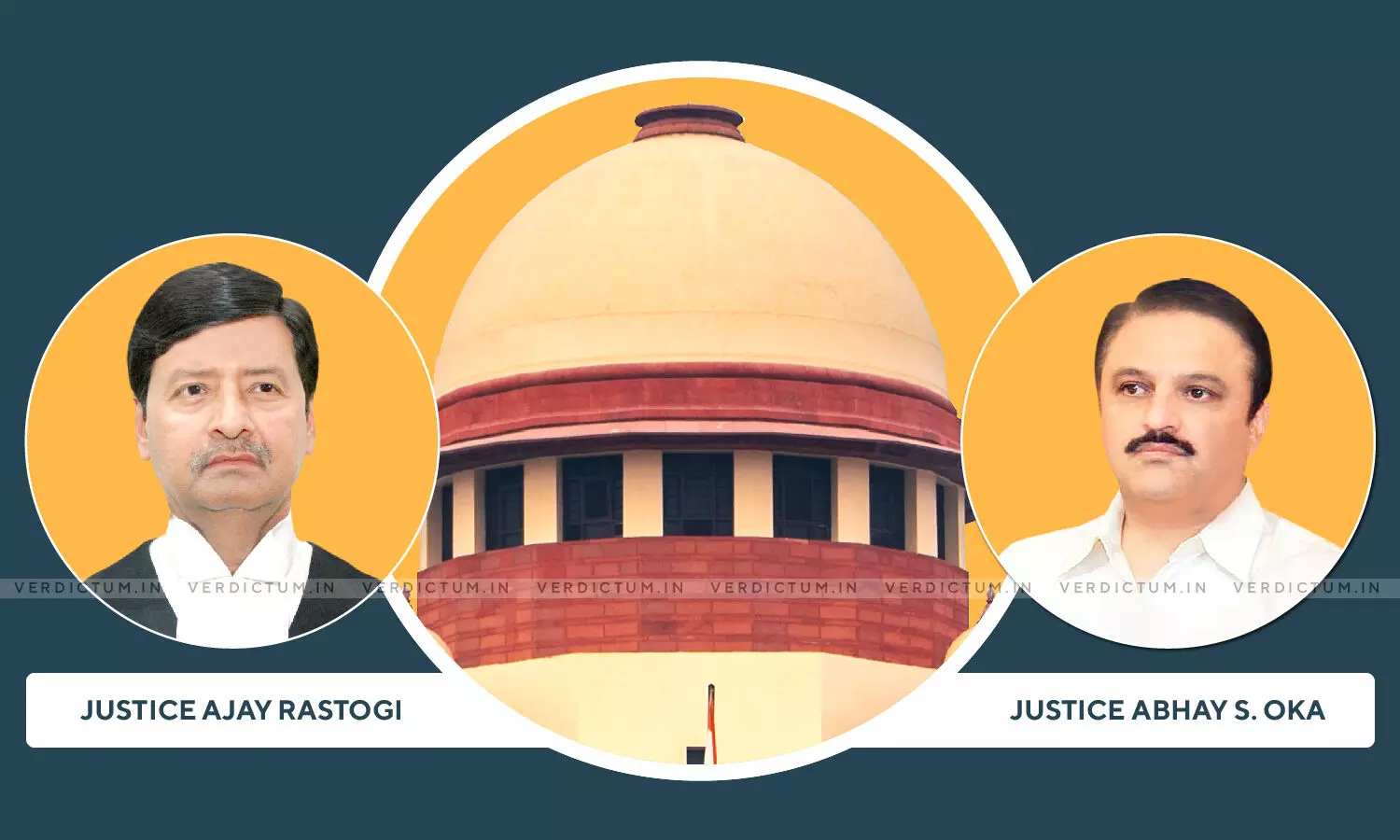
Court Assumed The Function Of Disciplinary Authority – Supreme Court Outlines Limits Of Interference Under Article 226
 |
|A two-judge Bench of Justice Ajay Rastogi and Justice Abhay S Oka has held that the scope of Judicial Review on the quantum of punishment is available, but with a limited scope.
The Court also held, "It is only when the penalty imposed appears to be shockingly disproportionate to the nature of misconduct that the Courts would frown upon."
An appeal was preferred by the Union of India against the judgment of the Division Bench of the Delhi High Court which substituted the penalty of removal of service inflicted upon the Respondent after holding the disciplinary inquiry as provided under the CRPF Rules, 1955 with the confinement of Respondent from 1 pm to 10 pm in quarter guard jail.
Additional Solicitor General Ms. Madhavi Divan appeared for the Appellant while Counsel Mr. Ashok Aggarwal appeared for the Respondent during the proceedings before the Court.
In this case, it was alleged that the Respondent had forcibly entered into the chamber of the Complainant who was a doctor for attesting the reimbursement of the medical claims and upon the doctor's refusal, the Respondent verbally abused and physically struck him.
The Complainant sustained injuries and to conceal his misconduct, the Respondent was alleged to have made a false allegation of sexual harassment on his wife against the doctor. This was followed by Respondent's suspension from his service with CRPF.
After a departmental enquiry was conducted against him, he was punished with the penalty of removal from service.
Meanwhile, the Supreme Court had stayed the operation of the impugned judgment passed by the Delhi High Court.
The Appellant contended before the Court that the interference made by the High Court under its limited scope of judicial review under Article 226 of the Constitution was a clear abuse of judicial discretion. It was further argued that the High Court proceeded as if it was a case of criminal trial where incident could be condoned if committed without pre-meditated manner or occurred at the spur of the moment.
While the Respondent contended that the High Court in the impugned judgment not only substituted the punishment but also protected his rights and saved his livelihood.
The Apex Court while referring to the various provisions of the CRPF Act, 1949 observed, "Section 11 of the Act was completely overlooked by the High Court while examining as to whether the punishment of removal from service could be inflicted in lieu of or in addition to dismissal from service to member of the force."
The Court also noted that the nature of allegations against the Respondent were grave in nature as the Respondent had not only threatened the doctor but also misbehaved and injured him and also made false allegations of sexual harassment of his wife.
"Such a nature of misconduct which has been committed by the respondent once stand proved is unpardonable and if the authority has considered it appropriate to punish him with penalty of removal from service by an Order dated 14th July 2004 and confirmed by the appellate/revisional authority and by the High Court in the impugned judgment leaves no sympathy for retention in service and that too in a discipline force like CRPF," observed the Court.
Additionally, the Court asserted, "The well ingrained principle of law is that it is the disciplinary authority, or the appellate authority in appeal, which is to decide the nature of punishment to be given to the delinquent employee. Keeping in view the seriousness of the misconduct committed by such an employee, it is not open for the Courts to assume and usurp the function of the disciplinary authority."
Further, the Court held, "Even in such a case, after setting aside the penalty order, it is to be left to the disciplinary/appellate authority to take a call and it is not for the Court to substitute its decision by prescribing the quantum of punishment."
The Court also opined, "However, it is only in rare and exceptional cases where the court might to shorten the litigation may think of substituting its own view as to the quantum of punishment in place of punishment awarded by the competent authority that too after assigning cogent reasons."
It was held by the Court that High Court should not have substituted its own discretion for that of the departmental authority.
"What punishment was required to be imposed, in the facts and circumstances of the case, was a matter which fell exclusively within the jurisdiction of the competent authority and the interference made by the High Court is in a cavalier manner while recording the finding of penalty to be disproportionate without taking into consideration the seriousness of the misconduct committed by the respondent which is unpardonable and not sustainable in law," the Court observed.
The Bench also held that the scheme of the Act, 1949 of which reference was made was completely overlooked by the High Court and while keeping in mind the standards of misconduct of a civil servant, interference was made in the quantum of punishment which may not apply to the member of a discipline force.
In the light of these observations, the Court set aside and quashed the impugned judgment of the High Court and allowed the appeal.
Click here to read/download the Judgment